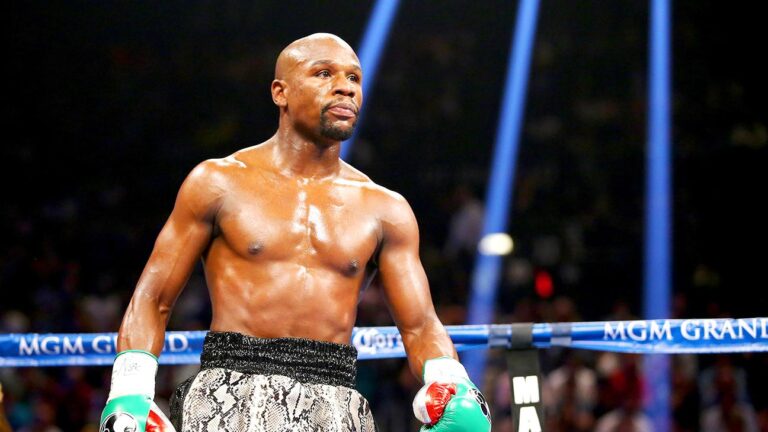Floyd Mayweather Jr. Initiates $100 Million Defamation Suit Against Business Insider
Floyd Mayweather Jr., the undefeated boxing legend turned successful entrepreneur, has taken legal action against Business Insider, filing a $100 million defamation lawsuit.This high-stakes legal move highlights escalating tensions between Mayweather and media organizations regarding the portrayal of his business ventures and personal image. The lawsuit represents a decisive effort by Mayweather to defend his reputation amid intensifying media scrutiny.
The complaint outlines several key grievances, including:
- Publication of articles that allegedly misrepresent his ethical standards
- Dissemination of inaccurate information about his business activities
- Business Insider’s refusal to issue corrections or retractions
| Allegation | Business Insider’s Position | Mayweather’s Rebuttal |
|---|---|---|
| Opaque Investment Practices | Reported lack of transparency | Firmly denies claims; asserts accuracy of information |
| Conflicts with Sponsorships | Suggested potential ethical conflicts | Labels claims defamatory; cites damage to partnerships |
| Unsubstantiated Personal Conduct Reports | Published without verification | Demands full public retraction |
This lawsuit is expected to ignite critically important conversations in both sports and media law, emphasizing the delicate balance between investigative journalism and safeguarding individual reputations.
Understanding the Core Allegations and Legal Basis of Mayweather’s Defamation Case
At the heart of Floyd Mayweather Jr.’s $100 million defamation claim is the assertion that Business Insider published false and damaging statements that have severely harmed his public image. The lawsuit accuses the outlet of irresponsibly linking Mayweather to illicit activities without sufficient proof, demonstrating a reckless disregard for factual accuracy. Mayweather argues that these defamatory statements have caused tangible financial losses, including the termination of sponsorship deals and diminished business opportunities, alongside emotional distress.
Mayweather’s legal argument is grounded in several key defamation principles:
- Falsity: The contested reports allegedly contain inaccuracies and unsupported claims.
- Actual Malice: The suit claims Business Insider knowingly published falsehoods or acted with reckless indifference to the truth.
- Reputational Harm: Demonstrable damage to Mayweather’s public standing and commercial interests.
- Public Figure Standard: Given Mayweather’s celebrity status, the lawsuit asserts that the threshold for proving defamation is met due to willful negligence.
| Legal Criterion | Clarification |
|---|---|
| Falsity | Statements proven to be incorrect |
| Actual Malice | Published with knowledge of falsehood or reckless disregard |
| Reputational Damage | Negative impact on public image and earnings |
| Public Figure Doctrine | Higher evidentiary standard due to celebrity status |
How This Lawsuit Could Reshape Media Coverage of Prominent Athletes
The defamation suit filed by Floyd Mayweather Jr. against Business Insider sends a clear message to media organizations covering elite athletes: accuracy and thorough fact-checking are paramount. This case underscores the necessity for journalists to exercise heightened caution when reporting on influential public figures, balancing the drive for investigative stories with the legal risks posed by potential inaccuracies. The outcome may lead to a shift in how sensitive topics involving sports personalities are handled, promoting more responsible journalism.
Critically important considerations for media professionals include:
- Enhanced Verification: Relying on multiple independent sources before publishing to mitigate legal exposure.
- Stronger Editorial Controls: Implementing rigorous review processes to ensure context and fairness.
- Legal Awareness: Training editorial teams on defamation laws and potential liabilities.
- Reputation Management: Recognizing the profound impact media narratives can have on an athlete’s career and public perception.
| Media Aspect | Potential Consequence |
|---|---|
| Freedom of the Press | May face increased limitations to avoid litigation |
| Speed of Reporting | Likely to slow down due to thorough fact-checking |
| Audience Trust | Could improve with more accurate and responsible reporting |
| Legal Expenses | Potentially ample if defenses are unsuccessful |
Best Practices for Media Outlets to Mitigate Legal Exposure in Sports Investigative Reporting
In light of Floyd Mayweather Jr.’s substantial defamation lawsuit, media organizations engaged in investigative sports journalism must adopt complete legal safeguards. A cornerstone of these protections is the rigorous validation of all sources and evidence, ensuring that every published claim is supported by verified facts. Additionally, integrating legal counsel into the editorial workflow can definitely help identify and address potentially defamatory content before it reaches the public.These proactive strategies not only reduce the risk of costly lawsuits but also enhance the credibility and integrity of journalistic work.
Effective measures to strengthen legal defenses include:
- Confirming information through multiple independent sources
- Keeping meticulous records of interviews and communications
- Consulting experienced media lawyers during examination and editing stages
- Educating journalists on defamation laws and ethical reporting standards
| Risk Factor | Preventative Strategy | Expected Benefit |
|---|---|---|
| Unsubstantiated Allegations | Thorough cross-verification of sources | Minimized defamation exposure |
| Anonymous Tips | Require corroborating evidence | Enhanced reliability of information |
| Editorial Oversight Failures | Legal review prior to publication | Early detection of legal risks |
Final Thoughts
As Floyd Mayweather Jr.’s $100 million defamation lawsuit against Business Insider progresses, it represents a pivotal moment in the ongoing dialogue between high-profile individuals and the media. The case will be closely observed for its potential to influence journalistic standards and the legal boundaries of reporting on public figures. Industry watchers and legal experts alike anticipate that the outcome could set important precedents in sports and media law. Updates will be provided as this landmark case develops.




